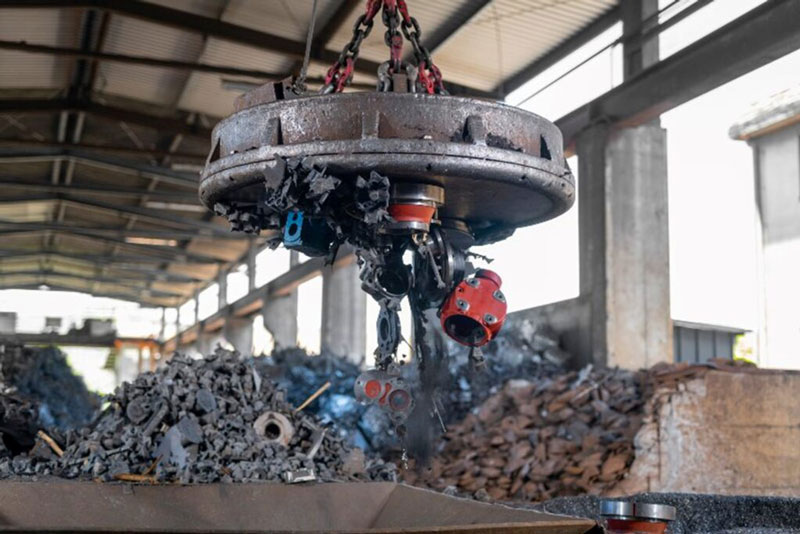5901 Botham Jean Blvd, Dallas, TX 75215
What Does Magnetic Separation Do in a Recycling Plant?
May 12, 2024Magnetic Separation and Recycling

In the complex world of waste management, recycling stands out as a crucial component of sustainable development. One of the essential processes within recycling is magnetic separation. This method, employing magnets to separate ferrous materials from non-ferrous ones, has revolutionized the way recycling plants operate. Understanding magnetic separation recycling is fundamental to grasping its importance in creating a cleaner and more efficient recycling system.
The Role of Magnetic Separation in Recycling
Magnetic separation in recycling is a process used to isolate ferrous materials—metals that contain iron—from a mixed stream of waste. This technique utilizes the magnetic properties of ferrous metals, which are attracted to magnets, allowing for their extraction from other materials. Recycling magnetic separation helps in separating materials such as steel and iron from non-metallic waste and non-ferrous metals like aluminum and copper.
How Magnetic Separation Works
At the core of this process is the magnetic separator for recycling, a device that generates a powerful magnetic field. When a stream of mixed recyclables passes through this separator, the magnetic materials are drawn out, sticking to the magnet, while the non-magnetic materials continue to move along the conveyor belt. The extracted ferrous metals are then collected separately.
Magnetic separation used in recycling typically involves two types of separators: drum magnets and overband magnets. Drum magnets are cylindrical devices that spin and attract ferrous metals as waste passes over them. Overband magnets, on the other hand, are positioned above a conveyor belt and attract ferrous metals from the waste below.
Advantages of Magnetic Separation Recycling
- Efficiency and Speed: Magnetic separation in recycling plants significantly speeds up the sorting process. By automatically removing ferrous metals, it reduces the need for manual sorting, thereby increasing overall efficiency.
- Purity of Recycled Materials: Recycling magnetic separation enhances the purity of the recycled materials. By ensuring that ferrous metals are adequately separated, the remaining materials are cleaner and can be processed more effectively.
- Cost-Effectiveness: Implementing a magnetic separator for recycling reduces operational costs. It minimizes labor requirements and decreases the wear and tear on machinery caused by ferrous metals in the waste stream.
- Environmental Benefits: Magnetic separation contributes to environmental conservation by improving the recycling rates of metals. Extracted ferrous metals can be reprocessed and reused, which reduces the need for new raw materials and lowers energy consumption.
Applications of Magnetic Separation in Recycling
Magnetic separation used in recycling is widespread across various sectors. Municipal waste processing facilities utilize it to manage household waste. In the construction industry, it helps in recycling demolition debris. Additionally, it is used in the electronics recycling sector to recover valuable metals from discarded devices.
Challenges and Future Prospects
Despite its advantages, magnetic separation in recycling faces certain challenges. The efficiency of separation can be affected by the presence of non-ferrous metals that exhibit weak magnetic properties. Additionally, advancements in recycling technology require continuous improvement of magnetic separators to handle increasingly complex waste streams.
Looking ahead, innovations in magnetic separation recycling aim to enhance the precision and efficiency of the process. Developments in sensor-based sorting technologies, coupled with magnetic separation, promise to create even more refined and automated recycling systems.
Harness the Power of Magnetic Separation with Okon Recycling
Magnetic separation plays a pivotal role in modern recycling plants by efficiently extracting ferrous metals from waste streams, enhancing the purity and quality of recycled materials, and contributing to cost savings and environmental sustainability. Okon Recycling, with over a century of leadership and innovation in the recycling industry, is committed to leveraging advanced technologies like magnetic separation to drive sustainable solutions. Contact us online or at 214-426-6566 today and join us in our mission to make a positive impact on the environment and work towards a sustainable future.
